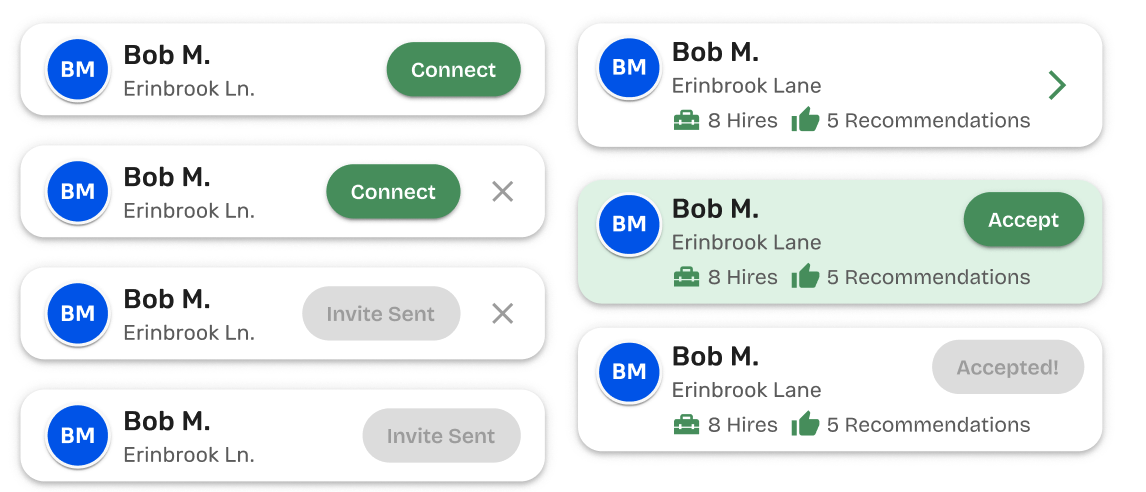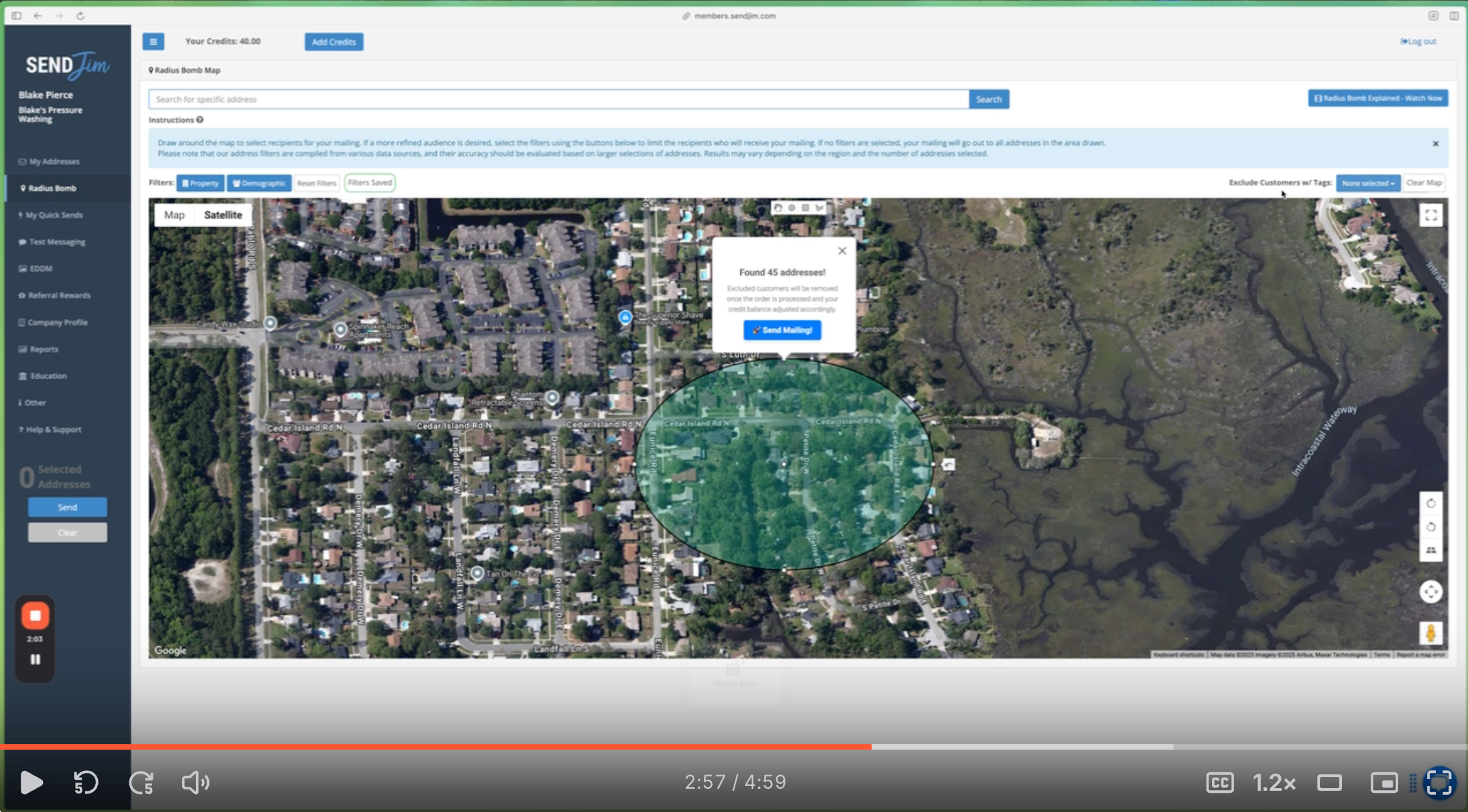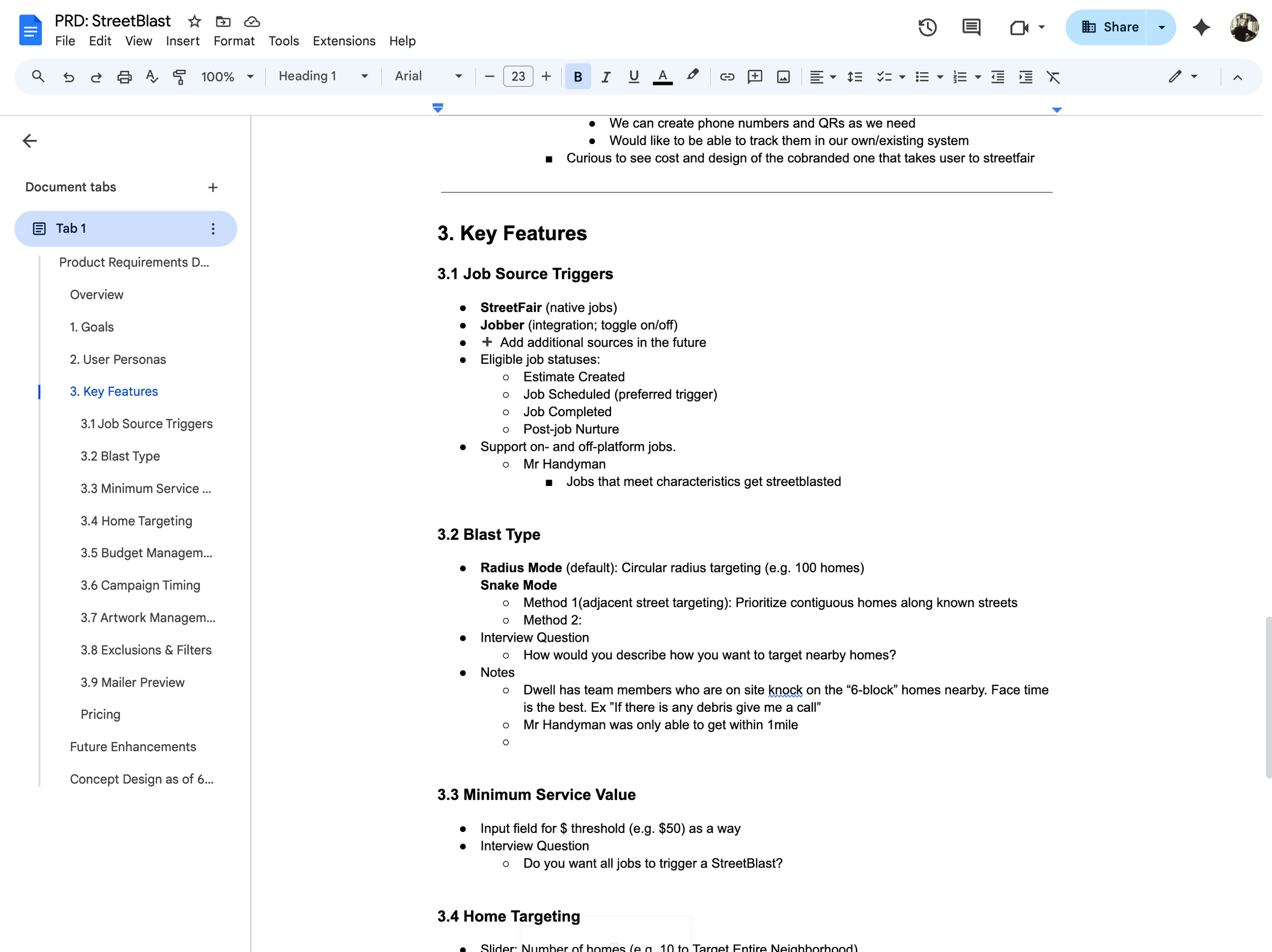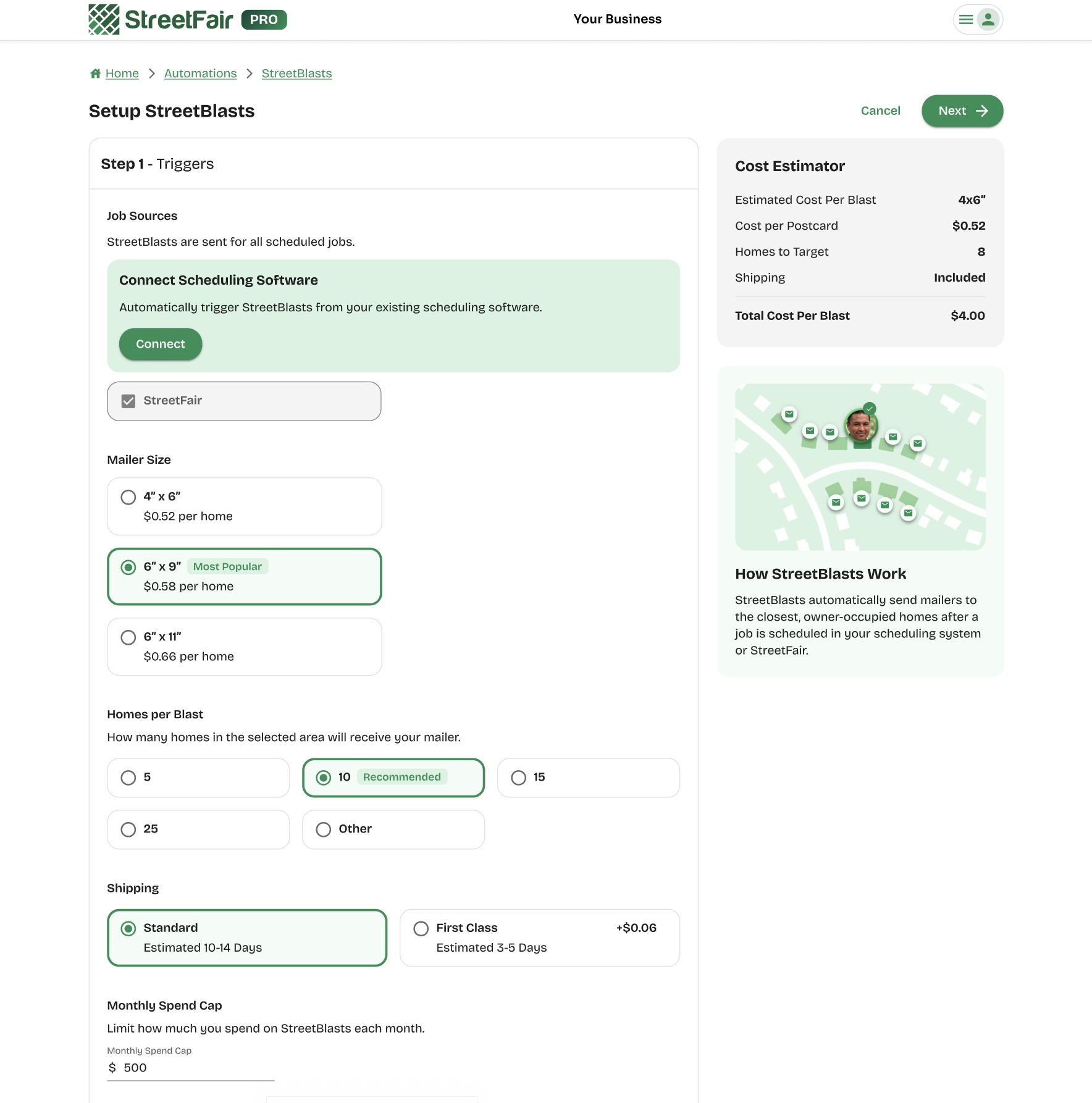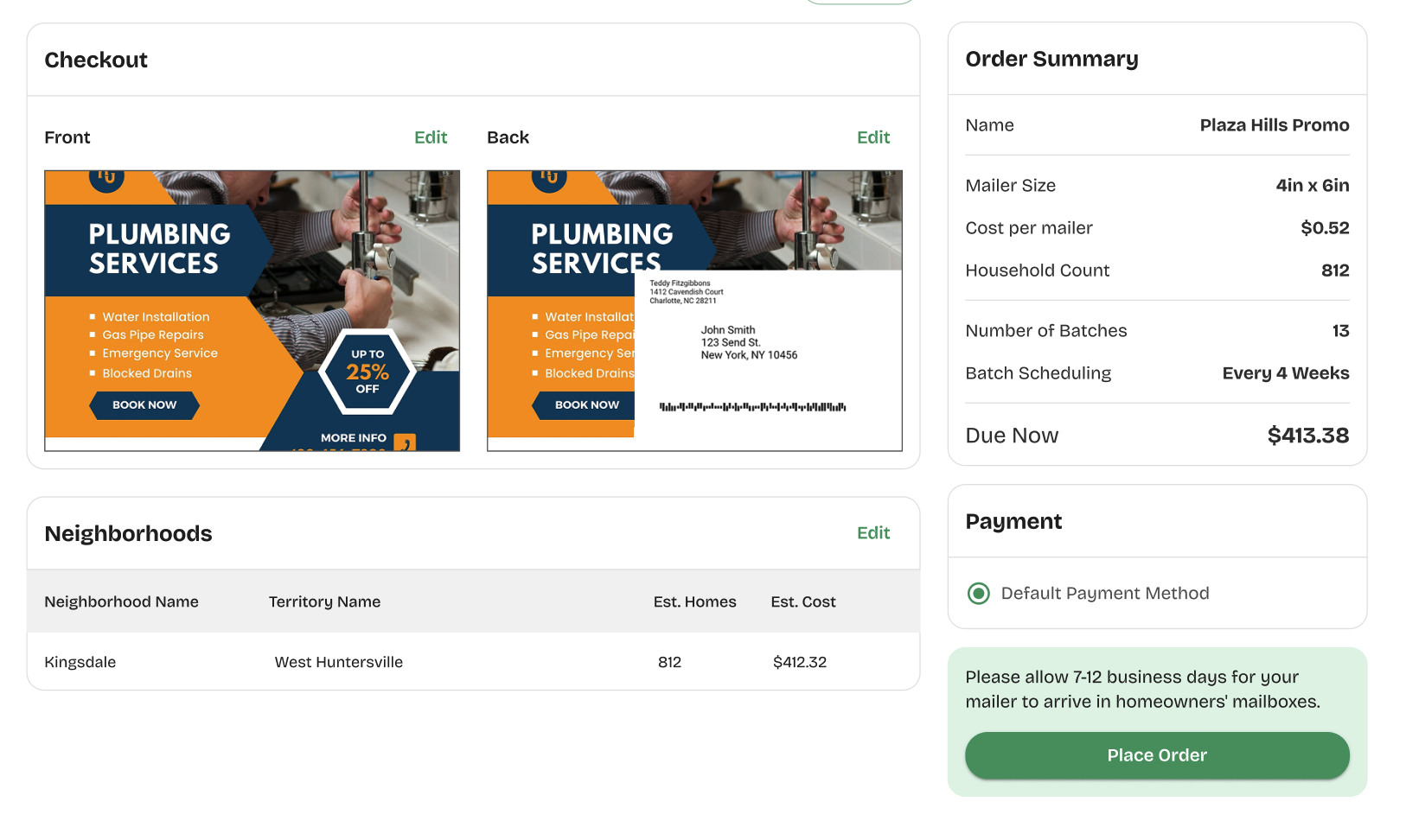StreetFair Design System
Define components for StreetFair’s consumer facing application where homeowners can find home service pros their neighbors recommend.
Project Details
Company
StreetFair
Project Length
Ongoing
Team
Christian H. (Engineering)
Owen C. (Engineering)
My Role
Lead product designer and user researcher
Opportunity
Capitalize on the leads we capture and allow them to trigger automated marketing mailers (something home service providers already do manually) with existing tools.
Audit and refine
Competitor review of SendJim’s Radius Bomb and EDDM (Every Door Delivery Mail) features. Each offered different ways to send mailers and moderate cost but neither were automatically triggered, filters we’re at the zip code level, and triggers (to initiate a mailer) were limited.
A screenshot of our collaborative requirement doc for StreetBlasts. In this doc we recorded links to user interview transcripts, personal notes and takeaways from those same interviews, and organized and prioritized requirements we saw in the market and heard from users.
Define (using v0!)
v0 has been an excellent way to define requirements with actual interface. Given this AI tool’s ease of use and speed, the prototype itself quickly became our product requirement doc. When needed, we would fork version of the prototype as we nurtured the main version along through interview after interview until it became clear what the ultimate vision should be and what the first version, the MVP, should be.
The planned MVP version developed in v0. We shared this in user interviews to nail down the exact minimum viable version of this feature and which user cohort it would be most valuable for.
The second iteration of the feature, developed in the same v0 prototype as the MVP so we could validate both versions with users and examine feasibility with engineering.
Develop
At this x
xx
x
Deliver
Withx
x
x
Results
This feature released its Beta in Aug. 2025 and the data is still coming in! (This was updated Mid aug 2025
Beta Users
6+
Beta Users

